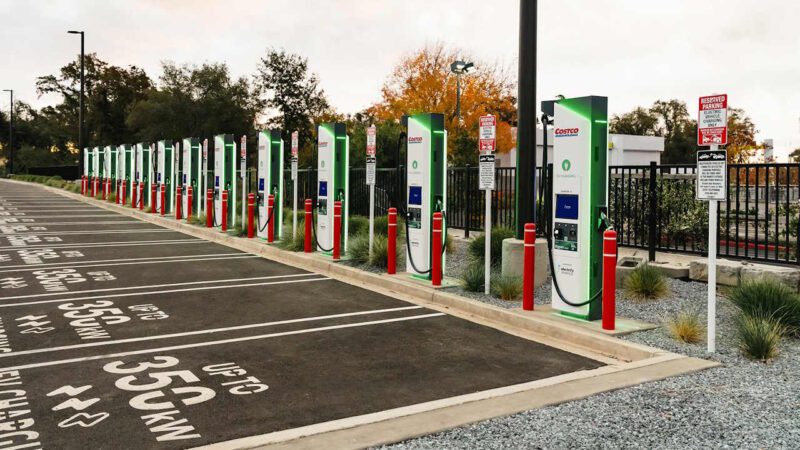Continuing its war on seemingly everything that has come before it, the newly installed Trump administration has moved to suspend a $US5 billion program designed to fund the installation of electric vehicle (EV) charging infrastructure across the country.
In a memo published late last week, the department of transportation’s (DOT) Federal Highway Administration (FHWA) informed states that the National Electric Vehicle Infrastructure (NEVI) Formula Program would be placed under review, effectively halting the funding of state-level EV charging infrastructure.
According to the memo,” no new obligations may occur” under the Program until a revised guidance has been published. While this allows existing obligations to be carried out, the memo nevertheless provides an out for willing states, explaining that states “will be held harmless for not implementing their existing plans.”
Originally passed by congress as part of the 2021 Inflation Reduction Act (IRA), the $US5 billion NEVI Formula Program provided funding to states to support the continued rollout of EV charging infrastructure.
Designed as part of a larger effort to establish a nationwide, interconnected network of EV charging stations to further support the uptake of EVs, the program had already doled out around $US2 billion.
That leaves around $US3 billion that states had assumed would be available to continue deploying EV charging stations.
The funding freeze is part of a larger government-wide effort to eradicate all support for clean energy projects and policies.
President Trump has already cut a swathe through the government’s clean energy and environmental policies – including preparing to pull out of the Paris Climate Agreement, halting offshore wind development, restarting plans to drill for oil and gas.
He has long planned to “revoke the electric vehicle mandate” – a mandate which does not actually exist, but which refers obliquely to the EV tax credit available for new car purchases. He has the support of Tesla CEO and “first buddy’ Elon Musk, who believes his car company will benefit from reduced competition in both EVs and network charging.
While many US states will likely enact their own plans to continue some of these plans, the federal government holds a lot of power to make life difficult.
Offshore wind leases, for example, and the use of public land for renewable energy projects, all rely on federal approval. Similarly, the US government can attempt to prevent state policies that stray from the new orthodoxy – a problem that California will likely face in the not too distant future, with its own EV mandate and clean energy policies.
However, the Trump administration does not strictly have the legal right to withhold funds which have already been appropriated by congress for projects such as the NEVI Formula.
For example, the Trump administration’s attempts to destroy US AID will likely face legal challenges at the highest level, as the organisation does not act under the direct auspices of the president but is rather an independent body created and funded by Congress.
Similarly, it may be that states looking to ensure the flow of funding for EV charging infrastructure can challenge the federal administration in court, unblocking the flow of money if the department of transportation seeks to terminate any future funding allocations.
Joshua S. Hill is a Melbourne-based journalist who has been writing about climate change, clean technology, and electric vehicles for over 15 years. He has been reporting on electric vehicles and clean technologies for Renew Economy and The Driven since 2012. His preferred mode of transport is his feet.

